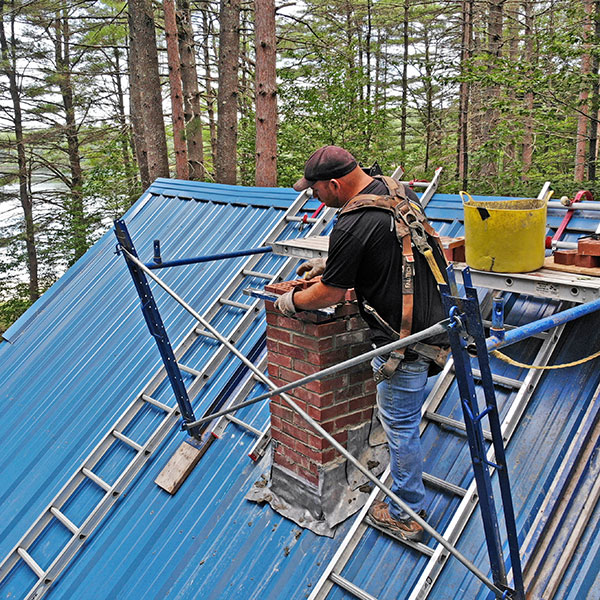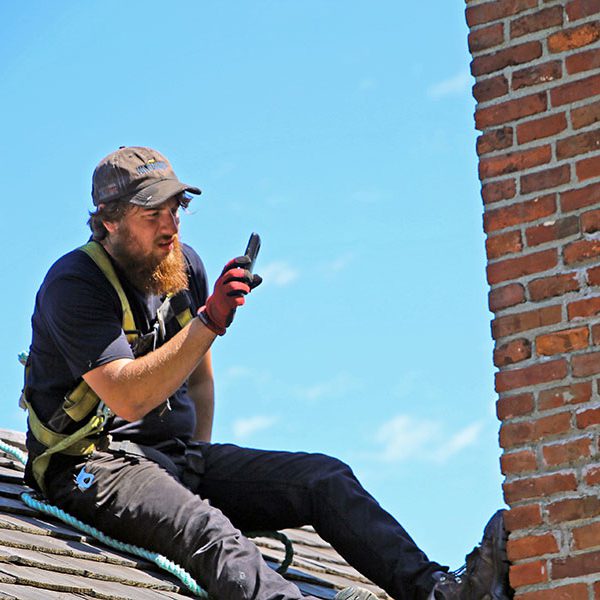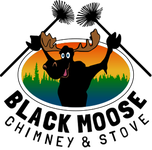
Weather that’s cold and rainy definitely can get the ball rolling toward chimney damage. Also, that kind of weather can significantly worsen any damage that already exists.
Water and masonry don’t mix well. As solid as the surface of a chimney is, water will eventually erode it. Rain and melting snow can get into cracks in the bricks and mortar and cause serious damage. Very cold weather only accentuates this problem.
What kind of damage can water and cold temperatures do to a chimney?
Infiltrating water can damage chimneys in various ways, depending on where and how the water is getting in.
Cracks in the chimney crown: When the chimney crown at the top of the chimney has cracks throughout the cement, water can seep into the cracks. Then, when temperatures fall below freezing as they often do in southern New Hampshire, the water will freeze and expand and push outward, which causes further damage to the crown.
Bricks and mortar damage: Bricks are made of a porous material and easily absorb water. As bricks and mortar age, cracking naturally happens. Any section of your chimney’s exterior masonry can suffer decay due to moisture within the material.
Water at the base of the chimney: The area where the roof abuts the chimney is another area where water can wreak havoc. If the flashing that seals off the gap is warped or damaged, it won’t be able to prevent rain and melting snow from running down the outside of the chimney and into unseen areas of the home, where it will rot walls and beams.
Water pouring in from the top of the chimney: If your chimney has no chimney cap, it’s easy for rain and snow to enter the flue. Once there, it can begin to erode the chimney liner or interior masonry. Water also can flow downward and rust out the damper.
 How to prevent and address water damage to your chimney
How to prevent and address water damage to your chimney
The first step in preventing chimney damage during a cold, wet winter is to have your chimney inspected. A certified, trained chimney inspector will be able to determine how much if any damage already exists and get to work repairing it.
If you have minor chimney leaks, the compromised areas of the masonry or crown often can be sealed with a waterproof coating to keep water out of cracks. In fact, many homeowners have their entire chimneys seal coated for added protection.
If a cracked crown is the culprit, it also may be able to be sealed or, if the damage is severe, rebuilt. Areas of significant water damage to the chimney’s masonry can sometimes be repaired with a process known as tuckpointing, where a new, strong compound is added to missing sections of brick and mortar.
In cases where the roof flashing is warped and letting water in, the flashing can be replaced. If there’s no chimney cap, one can be installed.
A leaky chimney is nothing to take lightly. When leaks begin, they never reverse themselves but rather keep getting worse. If your chimney is leaking or if you suspect there is damage to any part of the system, a certified professional chimney technician should be the first person you call.
Black Moose Chimney & Stove of Antrim, NH, is ready to help with expert chimney inspection, chimney repair and chimney cleaning services. We’ll get your chimney in top shape so it can keep on weathering our difficult New Hampshire winters year after year. Call (603) 525-7905 for more information or to schedule a visit.


